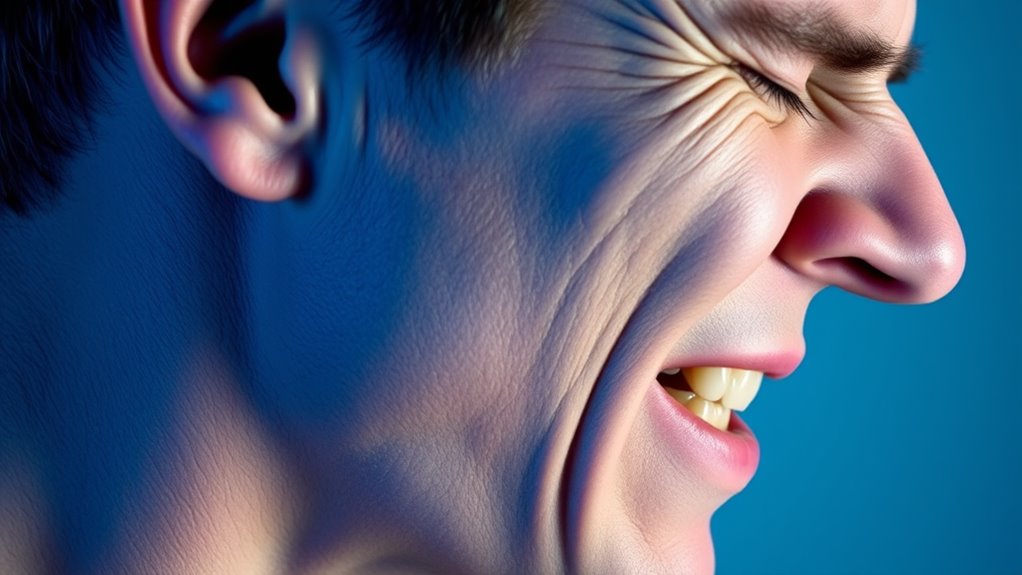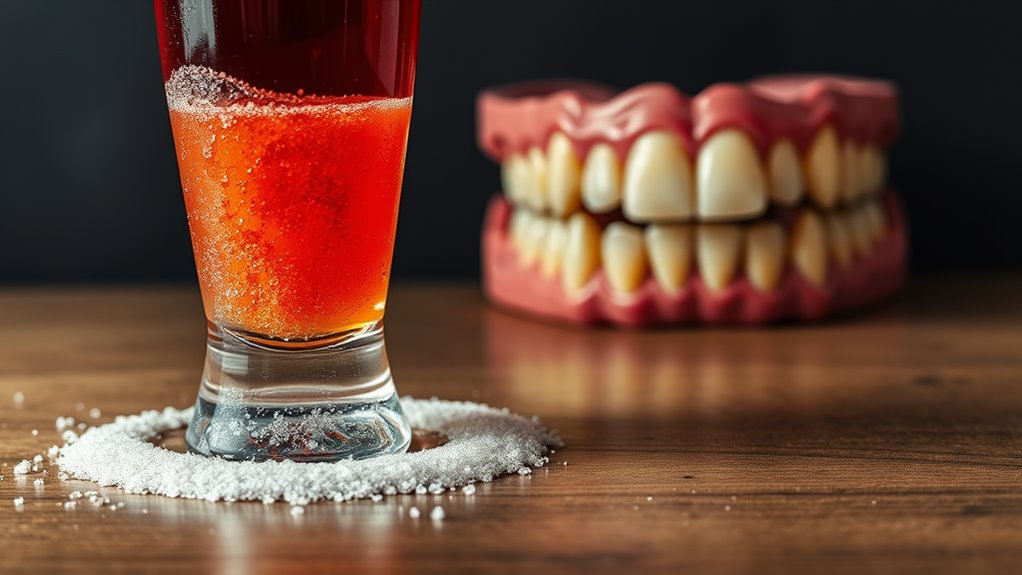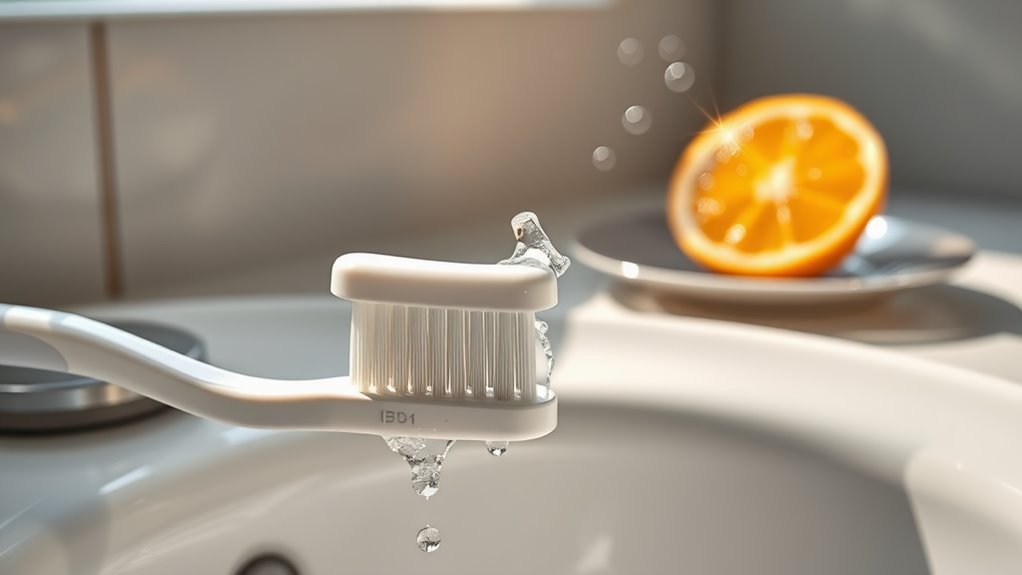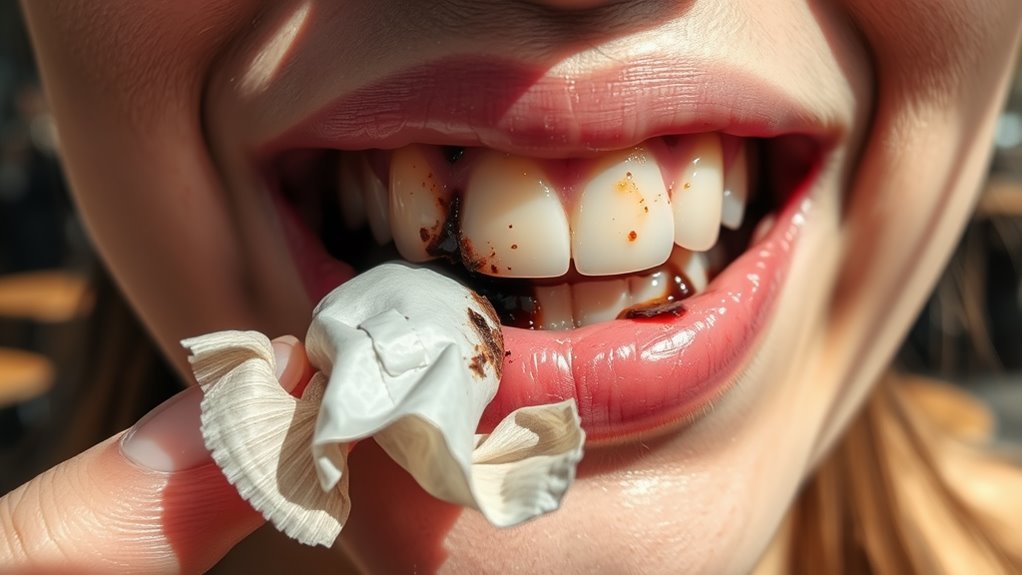Grinding Your Teeth. Here’s What It Means for Your Health!
If you’re grinding your teeth, you’ve got more than just a bad habit. This unconscious clenching, known as bruxism, can seriously damage your dental health and trigger chronic issues like headaches, jaw pain, and disrupted sleep. While stress is often blamed, hidden factors like sleep disorders, medications, and nutritional deficiencies may be the real culprits. Understanding your specific triggers and treatment options will help protect your long-term health.
Understanding Teeth Grinding (Bruxism): Signs and Patterns
Teeth grinding, also known as bruxism, occurs when you unconsciously clench or grind your teeth during sleep or while awake. You might notice common signs like worn-down teeth, increased tooth sensitivity, or tight jaw muscles when you wake up.
The patterns of bruxism can vary – you may clench your teeth continuously or grind them in a back-and-forth motion. If you’re a nighttime grinder, your partner might hear the grinding sounds while you sleep.
During daytime bruxism, you might catch yourself clenching when stressed or concentrating.
Watch for other symptoms like headaches, earaches, or facial pain. You may also experience disrupted sleep, damaged dental work, or cracked teeth.
If you notice indentations on your tongue or the inside of your cheeks, it’s another indicator you’re grinding your teeth.
The Hidden Triggers Behind Teeth Grinding
While many people assume stress alone causes teeth grinding, several hidden factors can trigger or worsen bruxism.
Sleep disorders like sleep apnea and insomnia can intensify nighttime grinding, as can certain medications, particularly antidepressants. Your bite alignment, missing teeth, or crooked teeth might also contribute to the problem.
Lifestyle habits you mightn’t suspect can play a role too. Consuming caffeine late in the day, smoking, or drinking alcohol can increase muscle activity in your jaw.
Even your sleeping position matters – stomach sleeping puts extra pressure on your jaw. Some medical conditions, including GERD and TMJ disorders, might make you more prone to grinding.
Surprisingly, nutritional deficiencies, especially in magnesium and calcium, can lead to increased muscle tension and grinding.
Health Risks and Complications of Chronic Grinding
When left untreated, chronic teeth grinding can lead to serious health complications beyond just worn-down teeth. You might experience persistent jaw pain, headaches, and even changes in your facial appearance as your teeth become shorter from constant grinding.
Your oral health takes a significant hit when you grind your teeth regularly. Here are the most concerning complications:
-
Cracked or fractured teeth that may require crowns, root canals, or even extractions.
-
Temporomandibular joint disorder (TMJ), causing clicking sounds, limited jaw movement, and chronic pain.
-
Tooth sensitivity and enamel erosion, making it painful to eat hot, cold, or sweet foods.
You’ll also risk developing ear pain, sleep disruption, and facial muscle tension that can trigger recurring migraines and neck pain.
Diagnosing Bruxism: When to Seek Professional Help
Recognizing the warning signs of bruxism early can help you prevent these serious complications. If you wake up with jaw pain, headaches, or neck soreness, you might be grinding your teeth at night. Other symptoms include worn-down teeth, increased tooth sensitivity, and tight jaw muscles.
Schedule a dental appointment if you notice these symptoms or if your partner reports hearing grinding sounds while you sleep. Your dentist can examine your teeth for unusual wear patterns and check your jaw muscles for tenderness.
They’ll likely ask about your stress levels, sleep habits, and medication use to determine potential triggers. In some cases, they might recommend a sleep study to rule out sleep apnea, which often occurs alongside bruxism.
Don’t wait until damage becomes severe – early diagnosis leads to better treatment outcomes.
Treatment Options and Preventive Measures
Once bruxism is diagnosed, several effective treatment options and preventive measures can help manage teeth grinding and its symptoms.
Your dentist may recommend wearing a custom mouth guard or splint at night to protect your teeth from damage. Additionally, stress management techniques like meditation, yoga, or therapy can address underlying anxiety that often triggers grinding.
- Practice jaw exercises and relaxation techniques throughout the day to reduce muscle tension.
- Apply a warm compress to your jaw before bed to soothe sore muscles.
- Consider Botox injections in severe cases to temporarily paralyze overactive jaw muscles.
You’ll also want to avoid habits that can worsen bruxism, such as chewing gum, biting pencils, or consuming caffeine close to bedtime.
Some patients find relief through physical therapy or acupuncture treatments targeting jaw muscles.
Long-Term Management and Lifestyle Changes
To successfully manage teeth grinding over time, you’ll need to make several sustainable lifestyle adjustments beyond initial treatments.
Start by establishing a consistent sleep schedule and creating a relaxing bedtime routine that might include meditation, gentle stretching, or a warm bath. Cut back on caffeine and alcohol, especially in the evening hours.
Make stress management a daily priority through regular exercise, yoga, or deep breathing exercises.
You’ll also want to maintain good posture throughout the day and avoid habits like pencil chewing or nail biting that can reinforce jaw tension.
Keep a food diary to identify any triggers that might worsen your grinding, and maintain regular dental check-ups to monitor your progress and adjust your treatment plan as needed.




